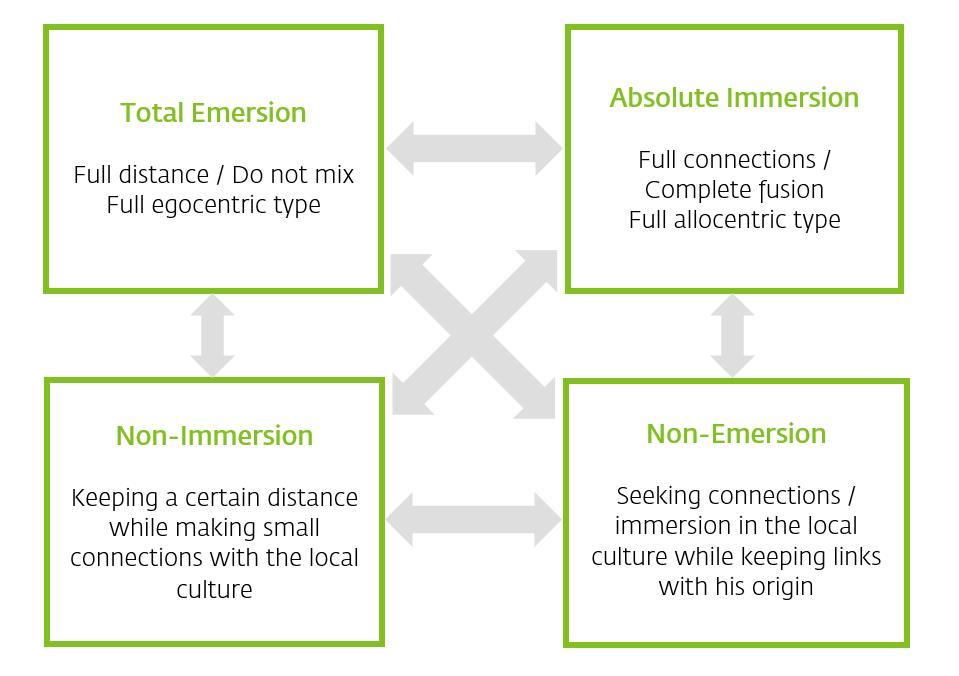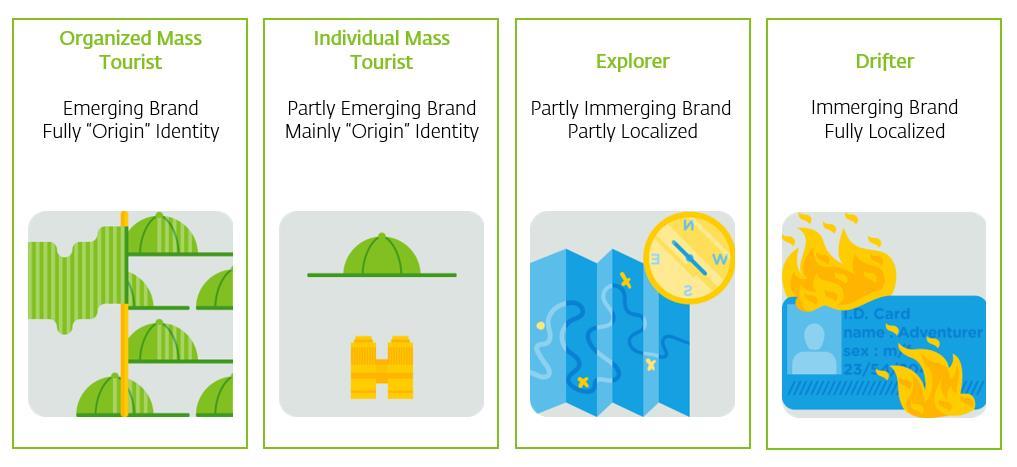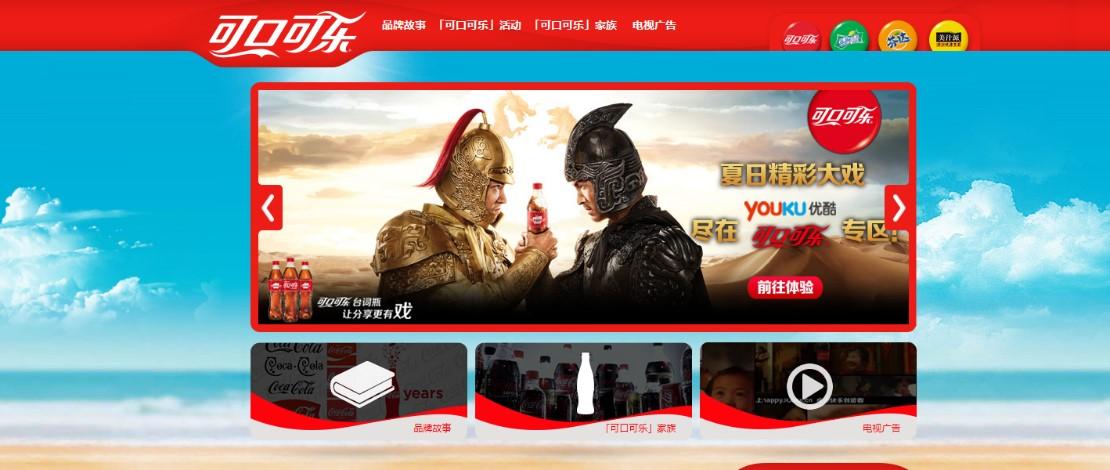

Explore the fascinating world of global brands and their journey of cultural immersion and local implementation. Just like travel broadens the mind, entering a new country is an encounter between a brand and the visited nation. How a brand interacts with the local culture, adapts its strategy, and embraces globalization can significantly impact its essence and vision. In this article, we embark on a captivating anthropomorphic metaphor, transforming a brand into a curious tourist, to delve into the intricacies of global brand dynamics and their transformative effects. Discover the exciting journey of global brands and their quest for cultural integration.
In the tourism industry, 4 typologies of tourists are often recognized according to their personality profiles and different behaviors adopted (Erik Cohen, 1972, Sociologist): the Organized Mass Tourist, the Individual Mass Tourist, the Explorer and the Drifter.
The Organized Mass Tourist prefers fixed and pre-designed itineraries. He’s averse to surprises or anything new and looks for familiarity. He stays in his comfort zone, no matter when it comes to food choices, social behaviors, etc. It is to the host to adapt to him and to create the “feeling-at-home” experience, such as a “breakfast just like at home”. The Organized Mass Tourist is, above all, focused on himself.
The Individual Mass Tourist tends to stick to his habits and looks for familiarity, but his journey isn’t entirely planned; while staying most of the time in his bubble, doing what he used to do “just like at home”, he will accept to make several arrangements to try to mix and connect with the local place/ visited country. For example, he’ll like to enjoy a local meal during the journey, or take an afternoon to discover a local market on his own.
The Explorer usually organizes his travel all by himself and tries to avoid the touristic sites and mixes with the local place/ visited country at maximum while keeping a certain distance to protect himself in a bubble. He’s dominantly willing to try out something new but does not completely integrate into the local customs. For example, he will go to local restaurants or enjoy local street food most of the time, but will sometimes evenly enjoy eating with fork and knife (instead of chopsticks in China) or choose places where hygiene standards and ambience codes are similar to his origin country. They keep trying, learning and breaking their limits. The explorer seeks new experiences, discoveries and cultural enrichment, but is also confronted to his own limits. How far is he willing to go without forgetting his own culture?
The Drifter, the full adventurer, gets himself thoroughly immersed in the local environment, adopts the customs and fully fits within the country and the people. He’s completely open, is guided by novelty and rejects any familiarity with his origin. He will adopt all the values and customs of the visited place and change drastically.
According to these 4 tourist profiles descriptions, 2 opposite attitudes appear:
An egocentric attitude, focused on one’s own ways of thinking, doing and behaving, which prefers a total emersion and does not mix with the local place; the opposite is an altruistic attitude, which means paying more attention to others than to themselves and prefers an absolute immersion.
Between these 2 extreme oppositions, there are 2 intermediate attitudes: a non-immersion attitude, which consists of keeping a certain distance while trying to make some small connections with the locals; a non-emersion attitude, which mainly seeks immersion in the local culture while keeping links with his origin.
This can be summarized through the following semiotic square:

When it comes to the branding strategy, we also find these 4 attitudes, each leading to different consequences.

An emerging brand (the Organized Mass Tourist) has a strong identity, which it assumes. It does not adapt to the local market, nor change its habits. Instead, it stays as what it is, and it’s the world that adapts to them. It creates new habits on the local market but doesn’t change much on their side. They are usually what we define as a globalized brand.
This profile will lead to a conquest strategy, sometimes successful when the brand makes it to impose its values (eg. Apple), sometimes not when rejected massively. In terms of brand personality, the emerging brand can sometimes be considered as arrogant, superior or distant, but can also be desirable as in the luxury sector.
In China, we have witnessed a lot of cases where brands contacted us for having failed with an imposing strategy.

On the opposite, an immerging brand (the Drifter) acts as a “local brand”. Having cut off all the links to its origin, this type of brands is even more local than a local one and can have nothing in common at all with its original image. The danger for these brands will be reaching a state of schizophrenic with 2 completely opposite worlds that are totally disconnected with each other.

Most of the international brands are between these 2 extremes and try to find a balance between the world of the visitor and that of the host, the original place and the destination.
As a result of searching for balance, there is a mutual enrichment of both the brand and the consumer, with nevertheless 2 variations, that correspond to rather different strategies:
In an approach of “Individual Mass Tourist” (“partly emerging brand”), the brand is dominantly global, and shares with its origin the same vision and values, with a centralized management but local teams will conduct adaptations at an operational level. The intention is made to privilege a shared identity while accepting punctual and minor adaptations.

“The Explorer” (“partly immerging brand”), honors a local approach, with a dominant intention to adapt locally, but stays with a global guideline to keep consistency.

Unlock the potential of your brand profile in the dynamic world of global brands. Defining your brand profile is a nuanced process influenced by target markets and the initial familiarity between your brand and the host country. Sector-specific dynamics, market conditions, and competition further shape your brand’s profile. Cultural differences play a vital role, particularly in sectors like food and intimate hygiene. Ultimately, your brand’s essence, history, organizational structure, and unique personality come together to form its distinctive profile. Discover the key elements that contribute to a strong global brand profile and position your brand for success in diverse markets.
Embark on a transformative journey with global brands as they navigate diverse cultures and embrace evolution. Opening up to the global market introduces new cultural contexts, prompting brands to reflect on their identity and envision their future. This journey of mutual enrichment keeps brands dynamic and prevents them from becoming stagnant. As Gandhi wisely stated, true travel encompasses self-discovery and growth, emphasizing the importance of introspection and evolution. Explore how global brands embrace this philosophy, continuously evolving and reinventing themselves to thrive in an ever-changing world. Experience the power of global brands and their transformative journeys around the world and within themselves.
A Labbrand Group Company © 2005-2025 Labbrand All rights reserved
沪ICP备17001253号-3To improve your experience, we use cookies to provide social media features, offer you content that targets your particular interests, and analyse the performance of our advertising campaigns. By clicking on “Accept” you consent to all cookies. You also have the option to click “Reject” to limit the use of certain types of cookies. Please be aware that rejecting cookies may affect your website browsing experience and limit the use of some personalised features.